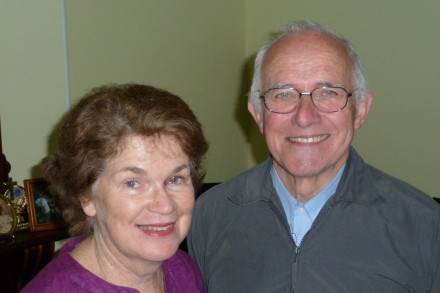Interviewer: Ben Stephenson for National Library of Australia
There are not many oral history interviews that set your feet tapping, but Pat McGrath’s does just that! Listening to it you might get the impression that Pat’s life is one long, gorgeous melody of Irish tunes played skillfully on his chosen instrument, the mouth organ. Accompanied at times on tin whistle by his interviewer, we are treated to an array of Irish jigs and reels, polkas and hornpipes, waltzes and slow airs. And just to show you that he is a man for a universal melody Pat throws in ‘La Bomba’, played at INA Sunday dances he used to attend in the 1960s. It’s wonderful to think of all those Irish/Australians gyrating away to that Latin American beat after completing a round of those good old céilí staples – the Walls of Limerick or the Siege of Ennis. The neighbours in Devonshire Street must have wondered what was happening to the Irish.
Pat’s encounter with music began when he was a young boy in the Clarina area, just west of Limerick City. There, in the late 1940s/early1950s, he remembers crossroads dances to the accompaniment of fiddles and concertinas. Someone bought him a mouth organ and he began to belt air through it, slowly beginning to realise there was more to producing a musical sound than just blowing. Music was part of family life – his uncle Joe played the fiddle and there would sometimes be dances in the house. More dramatic perhaps, from Pat’s perspective at the time, were the story telling sessions full of ghosts, banshees and the like, sessions from which he was often removed to bed.
Pat’s serious encounter with Irish music began after the family came to Sydney when he was nine. They settled in Revesby, and from then on there was always music in the house where his brother-in-law, Paddy Tierney, played the fiddle and Paddy’s brother, Jimmy, the banjo and fiddle. The radio and record player, giving out music, were also going non-stop. For someone like Pat it was a perfect environment:
I was hearing music constantly and I was humming it … and I knew what was coming next, and before you know it you’re taking it with you … and you just start playing a few of the tunes.
Pat’s musical development was soon recognised when he won first prize at a fund raising event, for his harmonica and button accordion playing at his local Catholic parish school. Amazingly, Pat still has a twinge of guilt about that because he feels the piano player was better than him and should have won.
From then until now, apart from having to earn a living in other ways, playing Irish music in a variety of settings and on different instruments has been central to Pat’s life. For a couple of years in the 1960s he played the pipes in the INA Pipe Band and even won a prize in Melbourne for his playing. For a time Pat was also involved with the Sydney Céilí Dancers and danced with them on occasions like Australia Day in formal performances representing the Irish community. The pipes, the concertina and the mouth organ were all open to Pat until an industrial accident, and the loss of three fingers, confined him to the mouth organ.
On that instrument, playing Irish tunes, Pat McGrath has few peers. What is even more remarkable is that he is virtually self-taught from listening to tunes on CDs, records and at sessions, and sees himself as the:
… kind of a fellow who listened to tunes and knew them but never knew their names – I’ve met guys who used to go on to the sessions and they used to say years ago I didn’t even know they had names, they were just tunes.
And in this interview the dance tunes just pour out of him – the Rakes of Mallow, St Patrick’s Day, The Wise Maid, the Flannel Jacket and many more. If you want a sense of the haunting beauty of Irish music, of its essential Irishness, listen to Pat McGrath in this interview playing that defiant rebel march Roddy McCorley or his haunting rendition of the The Lark in the Clear Air.

